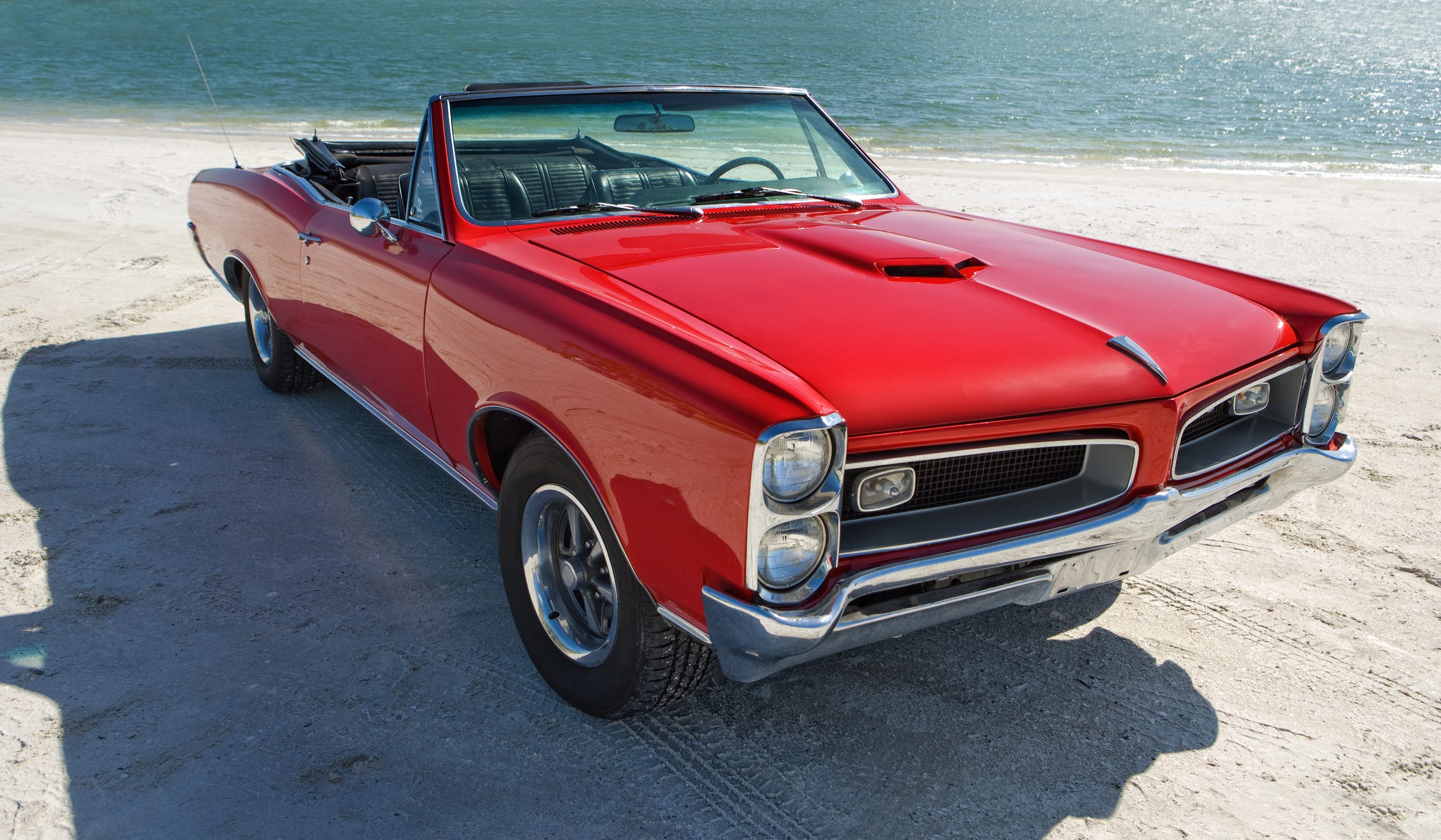Overview of the Used Car Market in the USA

The used car market in the USA is a massive and dynamic sector, significantly impacting the nation’s economy. It’s a complex ecosystem influenced by various factors, from consumer demand to economic fluctuations. Understanding these forces is crucial for both consumers looking to purchase a used vehicle and businesses operating within this market.
The used car market in the USA is characterized by high volume and significant price fluctuations. Competition among dealers, both online and offline, plays a key role in shaping the overall market. Furthermore, the ease of access to used car information online, via various platforms, is influencing consumer behavior and driving market trends.
Size and Trends of the Used Car Market
The used car market in the USA is a substantial portion of the overall automotive market. Sales volume often fluctuates based on economic conditions and consumer confidence. For instance, during periods of economic uncertainty, used car sales might decline as consumers postpone major purchases. Conversely, a robust economy often leads to increased demand and higher prices. The online component of the market is growing rapidly, with online platforms facilitating transactions and enabling more comprehensive market research for consumers.
Factors Influencing Used Car Prices
Several key factors affect the prices of used cars in the USA. Supply and demand dynamics are paramount. A scarcity of vehicles on the market, often due to production limitations or increased demand, typically results in higher prices. Economic conditions, such as interest rates and inflation, also have a direct correlation to used car prices. Recessions or economic downturns can lead to reduced demand and subsequently lower prices, while periods of economic growth often accompany price increases. Manufacturer recalls, particularly for vehicles with significant safety concerns, can significantly impact used car values as owners seek repairs or replacements. The condition of the vehicle, its mileage, and any previous accidents also play a crucial role in determining the selling price.
Types of Used Cars Available
The USA used car market offers a wide array of vehicles, catering to various needs and budgets. Domestic brands, like Ford, Chevrolet, and Chrysler, are common choices, and imported models, from Japan, Europe, and elsewhere, also represent a significant portion of the market. Luxury used cars, often from premium brands like BMW, Mercedes-Benz, or Audi, appeal to buyers seeking high-end vehicles, whereas economy models are popular for their affordability. Additionally, specialized vehicles, such as SUVs, trucks, and vans, cater to distinct consumer segments and have varying price ranges.
Average Used Car Prices by Vehicle Category
The following table provides a general overview of average used car prices across different vehicle categories in the USA. Note that these are approximate figures and actual prices can vary based on numerous factors.
| Vehicle Category | Average Price (USD) |
|---|---|
| SUVs | $25,000 – $35,000 |
| Sedans | $15,000 – $25,000 |
| Trucks | $20,000 – $30,000 |
| Luxury Cars | $30,000 – $60,000+ |
| Economy Cars | $8,000 – $18,000 |
Consumer Behavior and Preferences

Used car purchases in the USA are significantly influenced by a multitude of factors, from budget constraints to the desire for specific safety features. Understanding these consumer behaviors is crucial for dealerships, online marketplaces, and manufacturers to effectively target their marketing efforts and tailor their offerings to meet evolving needs. This section delves into the key priorities, demographics, and online resources that shape the used car market.
Common Concerns and Priorities
Consumers purchasing used cars in the USA frequently prioritize affordability and reliability. Budget constraints are a primary concern, leading many to seek vehicles within a specific price range. Reliability is another critical factor, as buyers often want a vehicle that will minimize unexpected repair costs. Safety features, including airbags, anti-lock brakes, and electronic stability control, are also important considerations, especially when families or young drivers are involved. Consumers are increasingly aware of the potential risks associated with older vehicles, often leading them to prioritize more recent models or those with extensive service records.
Demographic Factors
Several demographic groups are particularly active in the used car market. Millennials and Gen Z, known for their price-conscious nature and desire for fuel efficiency, are a significant segment. Families seeking reliable transportation for their children often purchase used cars, emphasizing safety and spaciousness. Individuals with limited budgets, including those just starting their careers or experiencing financial hardship, are also a key demographic, often looking for affordable options that meet their needs. The increasing popularity of used electric vehicles is also drawing in environmentally conscious consumers.
Online Resources for Research and Purchase
The internet has revolutionized the way consumers research and purchase used cars. Online marketplaces, automotive forums, and review websites have become indispensable tools. Consumers leverage these resources to compare prices, evaluate vehicle histories, and gather opinions from other users.
Online Platforms for Used Car Purchases
| Platform | Features | User Reviews |
|---|---|---|
| Carvana | Wide selection, online financing, transparent pricing, and delivery. | Generally positive, highlighting convenience and transparency but with some reports of issues with vehicle condition and delivery. |
| Autotrader | Extensive listings, detailed vehicle information, and tools for comparing models. | Positive reviews regarding the wide selection and detailed information, but some users report difficulty in negotiating prices. |
| Cars.com | Comprehensive search filters, user reviews, and vehicle history reports. | Well-regarded for the variety of features, especially vehicle history reports, but some users report issues with the accuracy of the information presented. |
| eBay Motors | Auction-style listings and a large selection, providing opportunities for potentially lower prices. | Mixed reviews, often highlighting the need for careful inspection and negotiation due to the auction-style format. |
| Facebook Marketplace | Local listings, often at competitive prices, but with potential concerns about verification and condition. | Mixed reviews, depending on the seller’s reputation, often highlighting the need for in-person inspections and caution. |
This table presents a snapshot of common online platforms utilized for used car purchases. The features and user reviews provide a comparative overview, but individual experiences may vary. Consumers are advised to thoroughly research each platform’s specific features and user reviews to make informed decisions.
Safety and Reliability Considerations
Navigating the used car market requires a keen eye for both safety features and potential reliability issues. Understanding common safety features across different models and years, coupled with a thorough assessment of vehicle history reports, significantly reduces the risk of purchasing a problematic used car. Thorough inspection procedures, along with interpreting vehicle history reports, will empower buyers to make informed decisions and avoid costly repairs or safety concerns.
Thorough assessment of safety and reliability is crucial in the used car market. Prioritizing these factors can lead to a more satisfying and less stressful purchasing experience.
Common Safety Features in Used Cars
Safety features in used cars vary considerably depending on the model year and make. Anti-lock brakes (ABS), electronic stability control (ESC), and airbags are increasingly common in vehicles from the early 2000s onwards. Advanced driver-assistance systems (ADAS) such as lane departure warning, adaptive cruise control, and automatic emergency braking are also prevalent in newer models. Understanding the specific safety features of the model you are considering is essential for assessing its overall safety profile.
Importance of Vehicle History Reports
Vehicle history reports provide a comprehensive overview of a car’s past, revealing accidents, damage, and maintenance records. These reports are crucial for assessing the reliability of a used car, as they can indicate potential hidden issues that might not be immediately apparent during a visual inspection. A detailed history report can provide insight into previous owners, mileage discrepancies, and any significant repairs or accidents.
Inspecting a Used Car Before Purchase
A thorough pre-purchase inspection is critical to identifying potential mechanical issues. This involves a comprehensive visual inspection, checking for signs of damage, corrosion, or wear and tear. Crucial areas to examine include the engine compartment, undercarriage, and interior. Pay attention to fluid levels (engine oil, coolant, brake fluid), tire condition, and any unusual noises. Test drive the vehicle on different terrains and road conditions to assess its handling and responsiveness.
Interpreting a Vehicle History Report
Vehicle history reports often include details on accidents, damage, repairs, and maintenance. Accidents involving significant damage may impact the structural integrity of the vehicle, even if repairs have been performed. High mileage, frequent repairs, or extensive service records can indicate potential reliability issues. Carefully analyze the report to understand the implications for purchasing the used car. Understanding these factors empowers buyers to make informed decisions based on the vehicle’s past performance and potential future needs.
Legal and Regulatory Aspects

Navigating the used car market in the USA requires a strong understanding of the legal framework governing transactions. This includes a wide range of regulations concerning warranties, disclosures, dealership practices, private seller responsibilities, and consumer protections. Knowing these aspects empowers buyers to make informed decisions and sellers to conduct business ethically.
Legal Requirements for Buying and Selling Used Cars
The legal landscape surrounding used car transactions in the USA is multifaceted, encompassing various aspects. State and federal laws dictate requirements for warranties, disclosure of vehicle history, and the conduct of both dealerships and private sellers.
- Warranties: Used car warranties are often limited compared to new car warranties. These vary significantly by state and the specific seller. Some states may mandate specific disclosures about existing warranties, if any, or limitations on those warranties. Consumers should thoroughly review any warranty information provided and understand the terms and conditions before purchasing a used vehicle.
- Disclosure Requirements: Transparency is paramount. Federal regulations require disclosure of significant vehicle history, including accidents, repairs, and odometer readings. State laws often supplement these requirements, mandating further disclosures. These regulations aim to ensure buyers are fully aware of a vehicle’s condition before purchase. Sellers must provide accurate information to avoid legal repercussions.
Regulations Related to Used Car Dealerships and Private Sellers
Different rules apply to dealerships and private sellers. Dealerships typically operate under stricter regulations, while private sellers face less oversight but are still subject to legal requirements.
- Dealerships: Dealerships are usually licensed and regulated by state authorities. Licensing requirements often involve background checks, financial stability assessments, and adherence to specific sales practices. Regulations often address issues like advertising accuracy, sales practices, and disclosure requirements. These measures aim to protect consumers from fraudulent or misleading practices.
- Private Sellers: Private sellers face less stringent regulations than dealerships. While not as closely monitored, they are still legally obligated to provide accurate information about the vehicle. This includes disclosing any known defects and providing a clear title, free of liens or encumbrances. This ensures transparency and protects both buyer and seller from legal issues.
Consumer Protection Laws and Rights
Consumer protection laws are in place to safeguard the rights of used car buyers. These laws vary by state, but common elements address issues like fraud, misrepresentation, and unreasonable pricing.
- Fraudulent Practices: Laws prohibit fraudulent practices, such as misrepresenting the vehicle’s condition or history. Consumers can seek legal recourse if they experience fraud during the purchase process. Examples include misrepresenting mileage or concealing accidents.
- Unreasonable Pricing: Some states have regulations concerning unreasonable pricing. These aim to prevent sellers from taking advantage of consumers by charging excessively high prices for used cars. These regulations often refer to market value comparisons and prevailing prices.
- Consumer Rights: Consumers have rights to a clear and honest description of the vehicle’s condition and history. This includes the right to receive the correct title and registration. Failing to adhere to these rights may result in legal action.
Process of Filing a Complaint Against a Used Car Seller
Filing a complaint against a used car seller involves several steps, and the process may vary depending on the state and the nature of the complaint.
- Gather Evidence: Gather all relevant documents, including the purchase agreement, any correspondence with the seller, and photos or videos documenting the vehicle’s condition. This is crucial for supporting the complaint.
- Contact the Seller: Attempt to resolve the issue directly with the seller. Document all communication attempts and outcomes. If the issue remains unresolved, the next steps may involve legal action.
- Contact Regulatory Agencies: Depending on the nature of the complaint, contacting state regulatory agencies, such as the Department of Motor Vehicles (DMV) or a similar consumer protection agency, is often the next step. Each agency has specific procedures for handling complaints and providing assistance.
- Seek Legal Counsel: If the issue cannot be resolved through other means, seeking legal counsel is advisable. Legal representation can guide the consumer through the legal process and represent their interests effectively.
Market Trends and Predictions
The used car market in the USA is a dynamic and complex sector, influenced by various factors including economic conditions, consumer preferences, and technological advancements. Understanding recent trends and anticipating future developments is crucial for both consumers and industry players to navigate the market effectively. Analyzing the US market alongside trends in other countries provides a broader perspective on the evolving landscape.
The used car market in the USA has seen significant fluctuations in recent years. Rising demand and constrained supply have contributed to substantial price increases, impacting affordability and consumer choices. This dynamic environment underscores the importance of understanding the underlying factors driving these changes.
Recent Trends in the US Used Car Market
The used car market in the US has experienced a surge in demand, driven by a confluence of factors. Supply chain disruptions, coupled with increased consumer demand, created a significant shortage of new vehicles. This shortage, in turn, pushed consumers towards the used car market, escalating demand and consequently, prices. Furthermore, low-interest rates and a robust economy have facilitated borrowing and increased purchasing power, contributing to the growth. Simultaneously, a growing preference for used vehicles due to affordability and environmental consciousness has further fueled the demand.
Future Predictions for the US Used Car Market
Several factors point to potential future shifts in the used car market. Sustained economic growth, coupled with ongoing supply chain challenges, could continue to influence pricing and availability. The evolving adoption of electric vehicles (EVs) and the growing demand for specific makes and models could create fluctuations in used car prices depending on the vehicle’s age and condition. Additionally, technological advancements in areas like vehicle maintenance and repair could significantly impact the reliability and perceived value of used vehicles. A potential decrease in interest rates or a downturn in the economy might temper the demand and prices.
Comparison with Other Countries
The US used car market exhibits unique characteristics compared to other developed nations. Factors like the size of the US market, varying regulations, and consumer preferences create a distinctive landscape. For instance, stricter emissions standards in Europe can impact the availability and pricing of certain used vehicles. The demand for specific models or vehicle types can vary considerably between countries, reflecting local preferences and regulations.
Factors Impacting Future Trends
Several factors could significantly shape the future of the US used car market. Economic downturns or recessions can influence consumer spending, potentially reducing demand and impacting prices. The pace of EV adoption and the availability of charging infrastructure can affect the demand for various used vehicles. Government policies and regulations, such as incentives for electric vehicles, can also impact market dynamics. The growing focus on sustainability and environmental concerns could increase demand for fuel-efficient or hybrid vehicles, impacting the prices of traditional gasoline-powered vehicles. Finally, advancements in technology, such as automated vehicle maintenance and repair services, could potentially influence the perceived value and reliability of used vehicles.
Tips for Choosing a Used Car
Navigating the used car market can be daunting, but with the right approach, you can find a reliable vehicle that meets your needs and budget. Understanding the process, considering crucial factors, and utilizing available resources are key to a successful purchase. This section provides practical tips for making informed decisions throughout the entire used car buying experience.
Pre-Purchase Inspection
A thorough pre-purchase inspection is paramount to avoiding costly surprises down the road. This inspection should be conducted by a qualified mechanic or a trusted, independent inspection service. It’s crucial to identify any potential mechanical issues, such as engine problems, transmission malfunctions, or electrical system discrepancies. A pre-purchase inspection provides critical data about the vehicle’s overall health, enabling you to make an informed decision. This inspection can highlight hidden problems, preventing costly repairs after the purchase.
Evaluating Vehicle Condition and History
Carefully evaluating the vehicle’s condition is essential to understanding its true value and potential future maintenance needs. This includes a comprehensive visual inspection of the exterior and interior, noting any signs of damage, wear, or tear. Furthermore, it’s vital to verify the vehicle’s history, including any accidents or prior repairs. Utilize online resources and government databases to obtain detailed information about the vehicle’s service history. This comprehensive approach allows buyers to anticipate potential future expenses and ensures they understand the condition of the vehicle accurately.
Comparing Prices and Features
Comparing prices and features across different options is critical to securing the best possible deal. This involves researching different models, comparing their specifications, and considering the various options available within your budget. For example, a used compact car with a high mileage may have a lower price point than a newer model with fewer miles, but the lower price may not justify the greater risk of maintenance costs associated with high mileage. It is crucial to create a comprehensive comparison list including the vehicle’s year, make, model, mileage, and condition, along with the seller’s asking price and any associated financing options. This systematic approach ensures you’re getting the most suitable vehicle for your needs and budget.